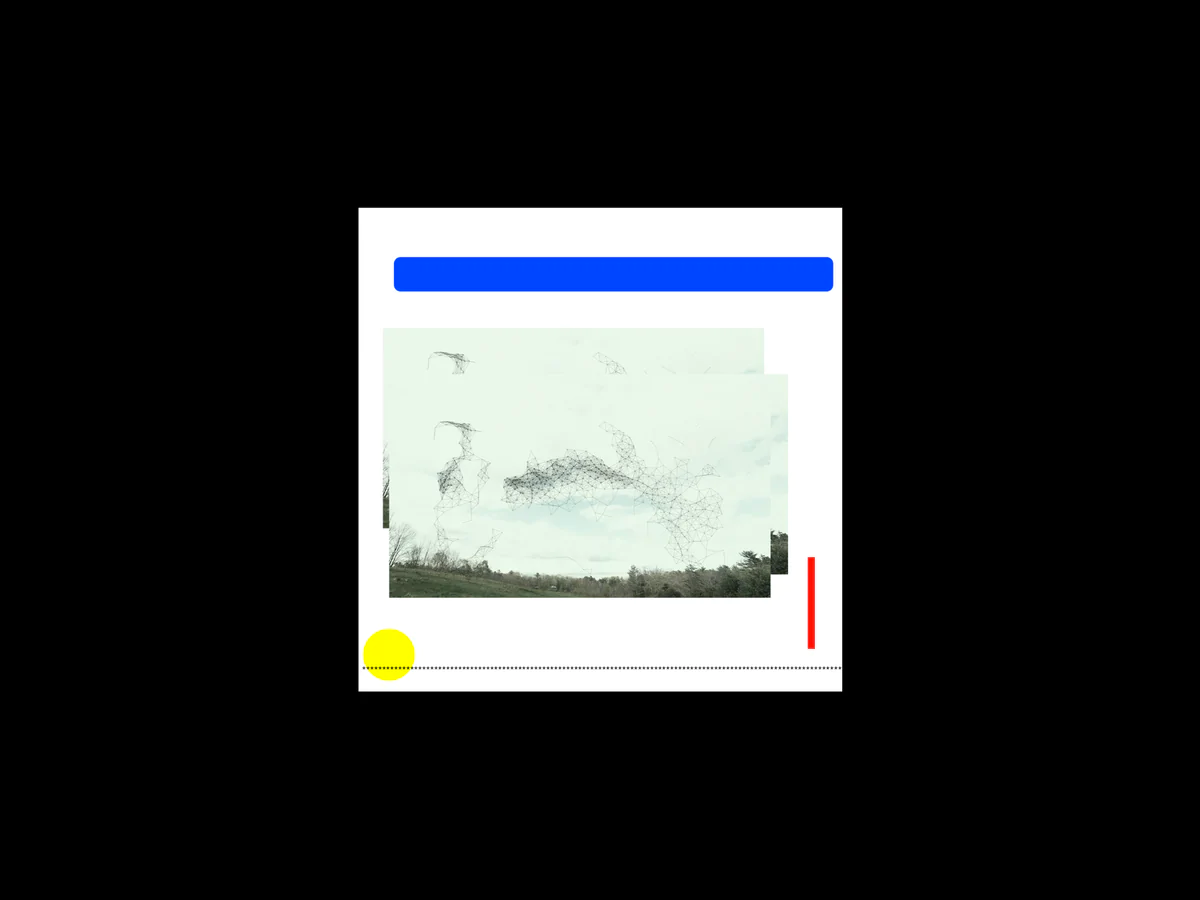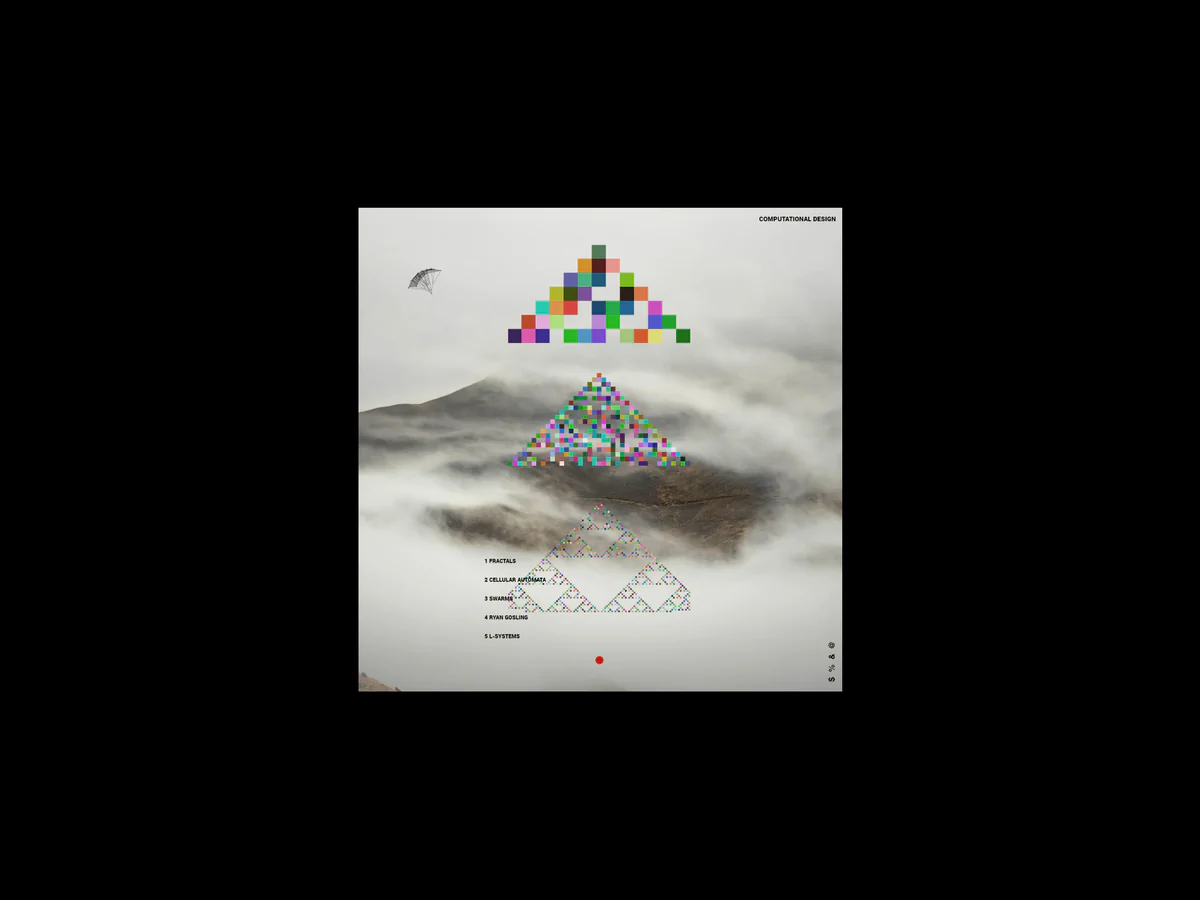Intermediate Coding: Intro to Computational Design
$500Apr 25, 2022 — May 31, 2022
Mondays from 9:15 pm — 12:00 am UTC
Apr 25, 2022 — May 31, 2022
Mondays from 9:15 pm — 12:00 am UTC
This intermediate programming course focuses on expanded fundamentals of programming in the practice of design and design research. We will work in Processing and produce time-based and static media artworks using fractal patterns, cellular automata simulations, swarm algorithms, and l-systems as well as workflows through which to implement our programs across video, fabrication, and print domains.
Beginner coding experience is expected, although this is a design-based studio and ready-made programs will be provided to either implement (beginner), adapt (intermediate), or inspire (advanced). Special attention throughout the course will cluster on network and procedural aesthetics and thinking, drawing from architectural, design, and fine arts practitioners such as Arakawa and Gins, Francois Roche, Jose Garcia, Greg Lynn, Donald Judd, Rona Pondick, JODI, and Isamu Noguchi as well as from authors such as Patrick Jagota, Orit Halpern, Benjamin Bratton, and Beatrice Fazi.
In class time, we will go over weekly tutorials, have snack, look at art, and talk about fractals, the who's who of Hollywood boys, component-based spatial reasoning, marxist media ecologies, and your, mine, and our favorite colors - the primary ones. Special attention will be given to folks attempting to think computational and digital techniques from the wondrous and expansive realms of daydreams, outbursts, flirtations, and inattention. Final project will draw from tutorial workflows to export a generative animation (.mp4), image (.jpeg), or vector file (.svg) into a design object (print, video, digital fabrication, etc.).
While the bounds of this class are porous and broad, every effort will be made to provide structure and workable routes through the design space that we will co-create throughout the studio.
Learning Outcomes
- Learn concrete workflows using Processing to export advanced computational visuals to the Adobe Suite.
- Learn about the emerging field of computational design, how it's carried out in Processing, and what other tools await you.
- Develop algorithmic thinking and programming skills.
- Cultivate a computational design practice and explore how to incorporate it into arts and design and/or research modalities.
- Discuss and research the aesthetics of hybrid nature-culture worldviews from a critical, labor-centered approach.
Student Requirements
Computer. Beginner knowledge of programming in a language like Processing (Java), Javascript, C#, or Python is highly encouraged, although it is not required and we won’t make too many assumptions about prior programming skills or background in the tutorial materials.
Instructor Bio
Will Hallett is an independent artist and researcher. He works on the history and contemporaries of arts-research with an emphasis on digital approaches to art, politics, and play. Will has previously taught computational design courses at Fordham University and at the Estonian Academy of Arts. He is an alumni of the Interactive Telecommunications Program at NYU and has written for Triple Ampersand Journal and the Journal of Psychoanalysis, Culture, and Society and runs a small flower farm and design studio in the Maine woods.
Syllabus
W1
Fractals. Recursive thinking and the warp and weft of code: loops and arrays.
Tutorial: exporting image files to Photoshop.
W2
Cellular automata. Combinatory design and algorithms as a space-fetish.
Tutorial: exporting video files to Premiere Pro.
W3
Swarms. Network aesthetics and the empty time of coded behaviors.
Tutorial: exporting vector files to Illustrator or InDesign.
W4
L-Systems. Complex systems and the non-human limit of design: art.
Tutorial: vector file to digital fabrication (CNC).
W5
Final project workshop. Discussion on expanded field of computational design: themes, disciplines, tools (brief discussion of p5.JS, Unity, Blender, Rhino, Max/MSP, and Pure Data.
W6
Crit: 5-10 minutes presentations depending on numbers. Mega-snack.
Suggested Reading
Beautiful Data, Orit Halpern
Aesthetic Programming: A Handbook to Software Studies, Soon and Cox
coming soon to the Index bookstore
Nature of Code, Daniel Shiffman
“The Premise of Recombinant Architecture”, Benjamin Bratton
“Combinatory Design”, Jose Garcia
“Economic and Philosophical Manuscripts”, Karl Marx
coming soon to the Index bookstore
“Component-Based Spatial Reasoning”, Harfmann and Majkowski
Scholarship
Index scholarships are designed to benefit underrepresented groups, BIPOC members of our community, and those for whom the class price is not accessible. These need-based scholarships will go to the candidates who best demonstrate why they should be chosen for the free spot to our class based on the following criteria:
- Belong to groups that are traditionally underrepresented in the graphic design and creative industries
- Do not have jobs that would pay for these courses as professional development
- Cannot independently afford the class at list price
- Share our value of intentional community
Will has graciously allowed us to offer a scholarship spot to two applicants. Applications are due April 19, 2022 and recipients will be notified April 22, 2022.

